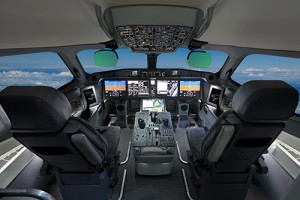 I was recently at a car museum full of beautiful automobiles from the last 100 plus years. In one of the exhibits I noticed a gentleman on his cell phone conducting what sounded like a business conference. If he had a family with him, they had already moved on to another hall. I thought about that. Amongst all of these fantastic cars, he saw the need to divert his focus. Was he multi-tasking or was he truly missing out on the opportunity that surrounded him? I wonder if we haven’t blurred the lines between work and non-work until they are undistinguishable.
I was recently at a car museum full of beautiful automobiles from the last 100 plus years. In one of the exhibits I noticed a gentleman on his cell phone conducting what sounded like a business conference. If he had a family with him, they had already moved on to another hall. I thought about that. Amongst all of these fantastic cars, he saw the need to divert his focus. Was he multi-tasking or was he truly missing out on the opportunity that surrounded him? I wonder if we haven’t blurred the lines between work and non-work until they are undistinguishable.
Two Weeks to Infinity
A number of companies, mostly high tech giants like Netflix, have introduced unlimited vacation time. Software developer Hubspot, has gone one step further and coined their vacation policy “two weeks to infinity,” which means they encourage their employees to take at least two weeks off each year, more if necessary. Software maker Buffer takes it one more step by offering employees $1,000 to actually use their vacation time. In other words, the company is paying employees to make use of a benefit they already have. No wonder we’re so tired.
The caveat behind most if not all of the unlimited vacation policies is the unspoken phrase “as long as you get all of your work done.” In a Harvard Business Review article last year the author argued that whether an unlimited vacation policy succeeds or not depends on trust within the company. Some companies have found that an unlimited vacation time policy actually resulted in employees taking fewer vacation days because they feel pressure to work more without the traditional boundaries. The Tribune, publisher of the Chicago Tribune and Los Angeles Times, rescinded their unlimited vacation policy in 2014 just a week after implementing it. With no vacation bank employees could no longer cash out their saved vacation hours when leaving the company, which turned out to be a coveted perk. Workers preferred the cash to the vacation. It can be hard to keep up with work, and vacation time suffers.
There’s an App for That
While we need an incentive or a reconstructed vacation policy in order to actually take time off, we also have more tools for conducting business while away from the office. Tools such as WhatsApp, Cisco Spark, and Facebook Messenger allow people to receive e-mails, texts or video communication on any device. Some of these apps also provide for screen sharing. They make use of the cloud by providing dedicated rooms for conversations and document sharing. At the same time, security is also important, often through message encryption. So, now we are afraid to take vacation in case we get behind in our work and even when we do take vacation, we are accessible to colleagues back at the office. If we are never offline, is it really a vacation? Is this the new norm?
Thoughts
I would love to hear your thoughts on the value of time off. Does a working vacation provide the same recharge as one where you are completely unplugged? Is the idea of “time off” going to go the way of the flip phone now that lines are blurring between work and non-work? Perhaps we need a new definition of work? Let me know your thoughts.
Kelly Brown is an IT professional and assistant professor of practice for the UO Applied Information Management Master’s Degree Program. He writes about IT and business topics that keep him up at night.




